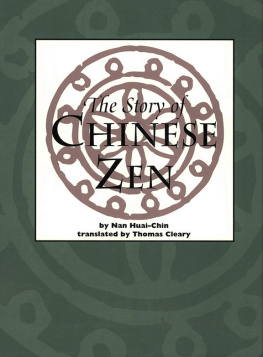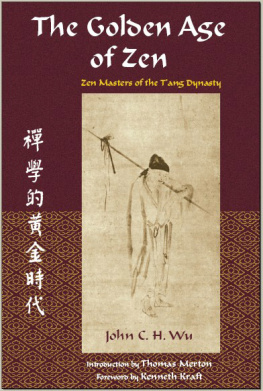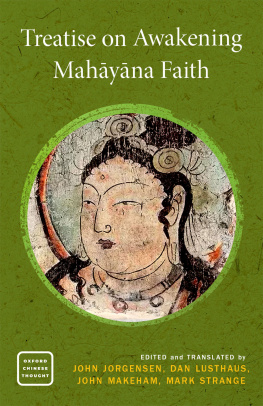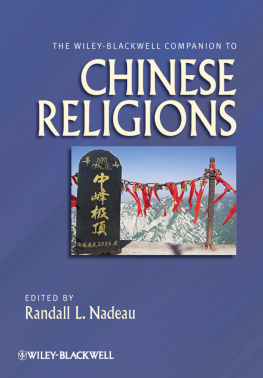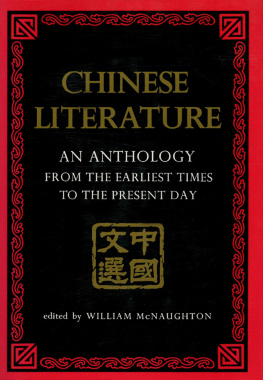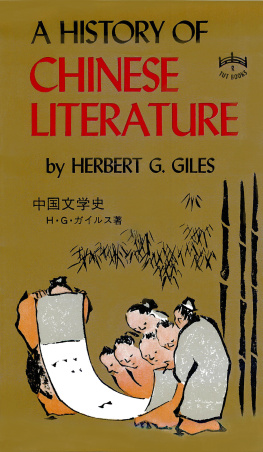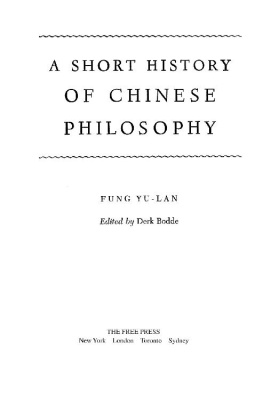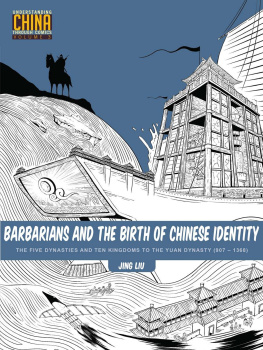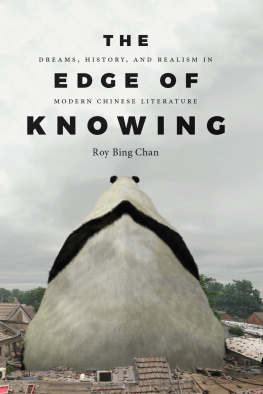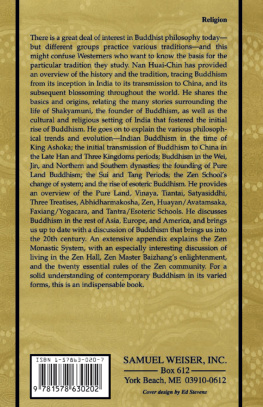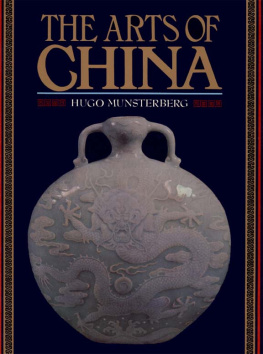About the Author
Z en Master Nan Huai-Chin was born on March 18, 1918, to a scholar-class family in Luo Ching, in China's Zhejiang province. During his childhood he was extensively tutored in the Chinese classics, and by age seventeen had mastered both Confucian and Taoist works. Although the imperial examination system had been by that time abandoned, the surviving examiner remarked that his literary essays would have ranked him among the top three candidates in the exam.
In his youth, Nan Huai-Chin studied the Chinese martial arts, including swordsmanship, and at eighteen became the provincial martial arts champion. His studies at that time also included Chinese literature, poetry, and calligraphy, as well as the I Ching and Chinese medicine. To this day, he remains one of the world's few experts skillful at diagnosing and correcting imbalances of the body revealed through meditation exercises. Master Nan continually sought out a variety of Buddhist, Taoist, and other masters when young, and studied under a total of thirty-two major masters as well as many minor adepts. Following Chinese tradition, much of the great knowledge he received was never written, but only handed down orally from masters to worthy students.
At age twenty-one, Nan became a military commander in the border regions of Szechuan, Yunnan, and Sikang, responsible for over ten thousand men. In 1942, at age twenty-four, he met his enlightened teacher, Zen Master Yuan Huan Hsien, and gave up his military position, with its accompaniments of money, fame, and power, to devote his energies fully to meditation and the search for answers about the questions of life and the universe. Under his teacher's guidance he achieved awakening and later went into retreat for three years at Mount O-Mei in Szechuan Province. During this time he remained secluded in a room, his back to a cliff, and verified his experiences against the entire Buddhist canon, which normally takes many years to read.
In 1945, Nan traveled to Tibet to learn further from the masters of the Esoteric school of Buddhism. There, the Hutukto (Living Buddha) Kung Ka of the White Sect also verified his Zen enlightenment and gave him the additional title of Esoteric Dharma Master. This marked him as one of the few multidisciplinary experts on the cultivation schools of Confucianism, Zen, Taoism, and Esoteric Buddhism, and his writings have therefore often been compared with those of the Great Masters of the Ming and T'ang dynasties. What particularly shows through Nan's writings is his lifelong striving to verify the findings of the sutras and sages. Due to his vast learning, personal experiences in meditation, and interaction with countless Zen practitioners, he has much wisdom to relate to the modern audience.
Master Nan settled in Taiwan in 1947 and was sought out by many students from all walks of life who appreciated his nonsectarian approach to self-cultivation. He has been a teacher, publisher, professor of philosophy at Furen and other Taiwanese universities, philanthropist, and sometimes hermit. His first book, The Sea of Zen , was published in 1956, and his Confucian Analects is often used in Taiwanese schools as the basic textbook on Confucius. Altogether he has published over thirty books on Zen, Confucianism, Taoism, history, military strategy, and traditional Chinese culture, and over one million copies of his works have been sold in mainland China alone.
Master Nan now resides in Hong Kong where he is involved in various business affairs, such as directing the construction of the first private railway in China, as well as with efforts to reintroduce into China cultural concepts previously destroyed by the Cultural Revolution. Only a few of his books are available in English. This volume, selected and translated by Thomas Cleary, comprises the first half of his Chinese work Zen and Tao .
Bill Bodri
Editor
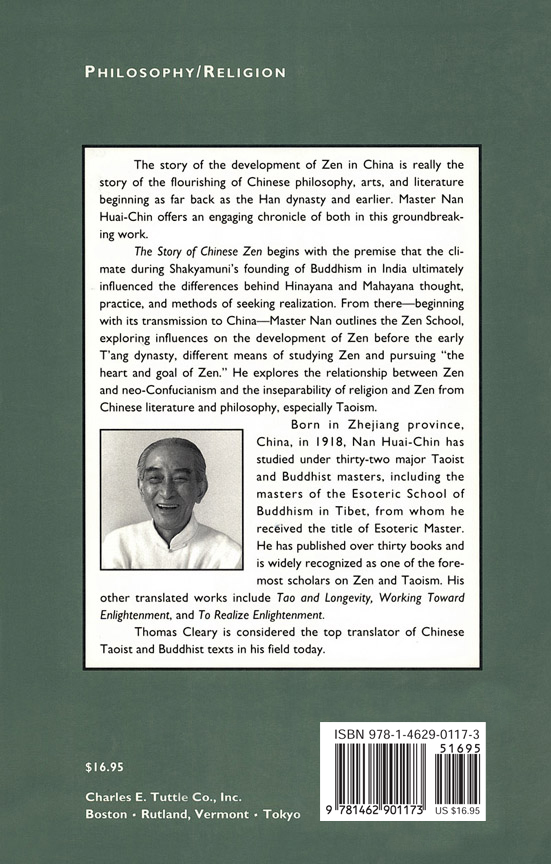
CHAPTER 1
Connections between Buddhism
and historical Chinese Culture
W hen we talk about the relationship between Buddhism and the history of Chinese culture, we should first discuss the general outline of Chinese cultural development, which can be divided into three general stages.
The first stage is from around the time of the three prehistorical emperors, Fu Hsi, Shen-nung, and Huang Ti, in approximately the third millennium B.C. Traditional Chinese culture has its remote roots in Fu Hsi's invention of the eight trigrams and the establishment of the cultural thought of the I Ching, which embodied concepts on the meeting point of heaven and humanity. The thoughts embedded in the I Ching therefore became the basic foundation of Chinese culture.
This primitive culture was simple and unaffected, scientific yet philosophical. It originated from the influence of the three legendary emperors, but further developed under the successive influence of the three imperial dynasties of Hsia (2206-1766 B.C.), Shang (1766-1123 B.C.), and Chou (1122 B.C.-256 A.D.). During this period the Chinese developed philosophies on the interaction of the celestial and the human centered on concepts found in the I Ching and the Book of Etiquette.
The second stage in cultural development came about as a diversification of the traditional culture. The transitional period between the Chou and Ch'in dynasties (sixth to third centuries B.C.) produced the scholarship and philosophies of many thinkers with mutual differences and similarities. Chinese culture received this influence and then passed through various developments and changes due to the Ch'in and Han dynasty periods (late third century B.C. to early third century A.D.). During this time there gradually evolved the particular forms of three schools of thought: Confucianism, Taoism, and Mo-ism.
The third stage of Chinese cultural development resulted from its passing through the influences of the Wei, Chin, and the Northern and Southern dynasties (third to sixth centuries A.D.). These produced a phase during the Sui and T'ang dynasties (late sixth to early tenth centuries A.D.) and thereafter in which Confucianism, Buddhism, and Taoism stood separately, changing with the times and alternately flourishing and declining.
From this point on, when we talk about Chinese culture through the Sung (960-1276), Yuan (1276-1367), Ming (1367-1644), and Ch'ing (1644-1911) dynasties, it is mainly represented by the three philosophies of Confucianism, Buddhism, and Taoism acting in concert. This phenomenon is like the river basins of Chinese geography: in the north there is the Yellow River, in the center there is the Yangtze River, and in the south there is the Pearl River Basin.
The interweaving of the Buddhist, Confucian, and Taoist systems has similarly irrigated and enriched the cultural life of China, so it really will not do to talk about any one of these schools in isolation. For those of us who are Chinese, it is all the more imperative that we understand what our own culture is really like. In particular, we have to note that the philosophical thought of China is basically very different from that of Western cultures. If we say that China has philosophical thought, that does not mean that it is an independent specialty, such as it is in the West. In Chinese culture, literature and philosophy have always been inseparable, literature and history are inseparable, and theory and application are inseparable.

